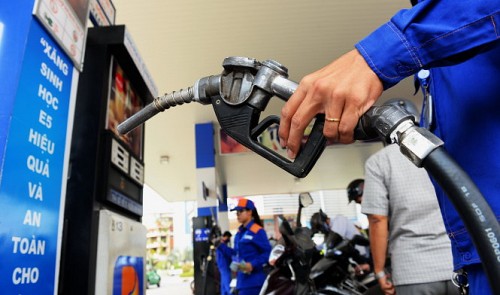An upcoming cut in oil output by the Organization of the Petroleum Exporting Countries may have little to no immediate consequences for Vietnam, experts and government officials said Thursday after the 14-nation bloc announced its reduction plan.
OPEC, which produces some 33.6 million barrel per day – a third of the world’s oil, announced the agreement on Wednesday to reduce output by 1.2 million barrel per day beginning January 2017, according to Reuters.
This is the first time in eight years the organization has decided to cut its oil output.
Impact on Vietnam
While it is certain that global oil prices will soar following the OPEC deal, Vietnam will be free of its impacts, at least in short term, according to local experts and industry insiders.
A high-ranking employee from Petrolimex, Vietnam’s largest fuel wholesaler, told Tuoi Tre (Youth) newspaper that fuel prices in the Southeast Asian country will not fluctuate much from the next price adjustment, with current global oil prices hovering around $50 a barrel.
Vietnam considers adjusting its domestic fuel prices every 15 day, with the next adjustment scheduled for December 5.
However, the Petrolimex official admitted that, in the long run, Vietnam’s fuel prices could be put under bigger pressure after global prices soar.
Dr. Ngo Tri Long, a price management expert, said Vietnam may be forced to increase fuel prices, considering that global oil prices are estimated to soon reach $55 a barrel.
The pundit noted that the government may intervene to prevent domestic fuel prices from skyrocketing by making use of the fuel price stabilization fund, which now has some VND1 trillion ($44.64 million) at disposal.
However, a representative from the Vietnam Petroleum Association is confident that global oil prices will not reach $55 a barrel, and instead will stay around $50 because “many countries are boosting their consumption of clean energy and alternate fuel.”
This outlook is supported by Nguyen Hoai Giang, chairman of BSR, the operator of Dung Quat, Vietnam’s only operational oil refinery. Giang said the crude oil price in 2017 will only range between $40 and $50 a barrel, given the troubled global economy and low demand for fossil fuel.
In the meantime, an official from the Ministry of Finance said the global oil price development following the OPEC deal will not put pressure on Vietnam’s state revenue.
The lawmaking National Assembly has prepared the budget plan for 2017 under the estimated oil price of $50 a barrel, so if the real price development does not exceed this rate, the state revenue collection is unfazed, according to the official.
In the Jan-Nov period of this year, global crude oil price averaged around $44 a barrel.






















































